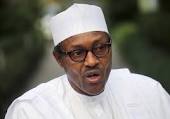While some friends and associates of Nuhu Ribadu preferred that he refrained from accepting an assignment from the Jonathan administration, Nuhu argued otherwise. He considered his ad hoc assignment a duty to render a national service. And as a practicing patriot, he did what he considered needful. Like a disinfectant thrown into the fast-spinning chamber of Nigeria’s political washing machine, between 2010 when he returned from exile, Ribadu has run for the Nigerian presidency (under the defunct Action Congress of Nigeria), served as a Chairman of the high profile PRSTF, broke camp with his “progressive” political fold, joined the PDP and ran for the governorship of his Adamawa home state. He has not been fortunate with his electoral quests; at least, not yet. And that is why he may find Buhari’s playbook handy and maintain a staying power. There is, however, no paucity of perspectives, including criticisms, regarding Ribadu’s post-EFCC political adventures. Reading through Nasir El-Rufai’s Accidental Public Servant, one gets some sense of those reservations from one of Nuhu’s closest associates. But what no one can take away from Ribadu is the consistency of his crusade and the courage of his own convictions. I have yet to come across anyone who questions Ribadu’s integrity.
Nuhu Ribadu was in his missionary elements recently when he bluntly told members of his circumstantial “political family”, the PDP, some not-so-convenient truth. Ribadu beckoned the PDP National Assembly (NASS) members-elect on the need to champion transparency, accountability and to commit to selfless sacrifice. Identifying with majority of Nigerians over the over-bloated nature of the remuneration of Nigerian lawmakers, he made a case for PDP members to support the popular sentiment in favour of NASS to prune its budget and re-calibrate itself to service and popular expectations of probity. Ribadu made a compelling argument for PDP to accept its new status as an opposition party and to redesign itself along the lines that could endear it to the expectations of Nigerians and to the mood of the country as the best strategy for the party to return to power. Expectedly, it was obvious that Nuhu was in the wrong company, as it did not take much time for the PDP NASS leadership and segment of his audience to push back. The Malam found himself preaching to those who have made a pack against conversion. Only few scenes could affirm Ribadu’s 2014 decision to nestle with the PDP as a political misstep.
The cold reception to Ribadu’s address by his party members is hardly surprising. As the saying goes, it is hard to transform to left-handedness at an old age. PDP is not psychologically or structurally (assuming there was a structure) designed for the role Ribadu envisages for it. For a party that considered elections hollow rituals of convenience with a sense of entitlement to victory, the idea of sacrifice is alien. Many have argued that the PDP need not die because Nigeria needs a virile opposition now. I have a different take. So far, given the spate of defections and lethargy among PDP’s rank and file, it is evident that PDP may not be the source of much-needed opposition. The party in the PDP is over. Perhaps, like the seed, the PDP needs to actually die before it can renew itself into any real opposition. And the opposition space should not be PDP’s exclusive preserve. It needs to be truly open for all including a PDP incarnate (which would be a burden with that name) and or some marsh-up or re-mix of some fringe and marginal parties. A totally new ‘movement’ is possible. What is needed is an opposition buoyed by conviction, willing to make the sacrifice. PDP has been so bloated in comfort, sleaze and dependence on the public treasury that its gluttonous credentials would not admit of the fasting, starvation, belt-tightening and sacrifices required for what promises to be a long haul opposition.
As for Ribadu, his continuing and enduring presence in Nigeria’s political scene is good. President Buhari has named tackling corruption a component of his core agenda. Nigeria has very rich reservoir of human resources that share his anti-corruption commitment with comparable resolve. They are found across all ethnicities, political parties, professions, religions, gender and other persuasions. Ribadu is outstanding in this company and his relevance is not limited to the EFCC. His best before date is still far away. He has the ingredients of a longer shelf life of relevance for Nigeria’s political re-birth. There are only two problems from my pensive point of view. One is whether the President would rise above the sentiments in some quarters of Ribadu’s perceived irritation or vote-splitting in running against him in 2011. The other is whether the patriotism in Ribadu would push above expected blackmail that would trail his potential decision to serve again if and when called upon. My sense is that Nigeria’s best interest trumps these reservations. No sacrifice is too much for Nigeria. That was the point Ribadu made to his PDP friends. And they did not seem to agree with him. No thanks to his own calculations, Ribadu is in a bad company presently. But Nigeria needs him, and I’d add, badly.
*Law Professor, University of Ottawa; Twitter: @chidi_oguamanam



Be the first to comment